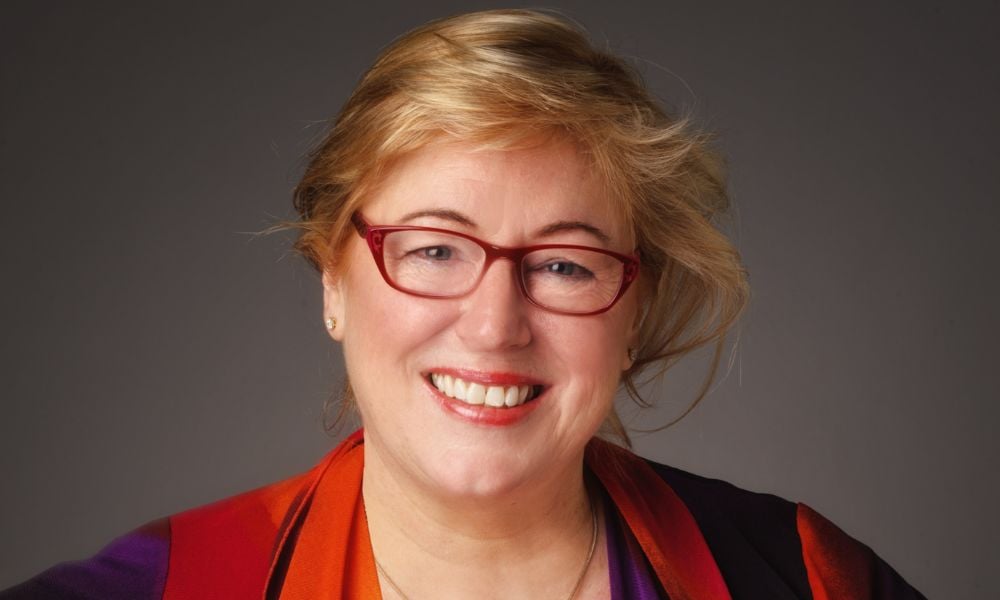Broker speaks on insights on transformation, overcoming industry challenges, and the crucial role of human connection in mortgage broking

In an industry defined by constant evolution, Louise Lucas (pictured), chief executive and founder of The Property Education Company, has carved a niche for herself through a combination of personal experience, technological adoption, and unwavering commitment to client education.
From her beginnings in 2007 with Destiny Financial Solutions to establishing her own firm in 2014, her journey is a testament to the resilience and adaptability required to succeed as a mortgage broker today.
Journey to broking
Lucas’s foray into mortgage broking was driven by a desire to enhance her financial acumen, especially after feeling a gap in her own investment knowledge.
“I always wished I knew more about finance when I was investing when I was younger,” she said. “How useful is finance and loan information in helping you manage your life goals well.”
This insight became a cornerstone of her approach to broking, focusing on empowering clients with the financial knowledge they need to make informed decisions. Starting her own firm 10 years ago, she now leads a team of four brokers, and six support members (pictured below) who are all based offshore in the Philippines.

Positive developments: Technology and efficiency
For Lucas, the most significant positive development in broking has been the shift towards online interactions.
“Before the pandemic, most clients would still want to meet us in the office, but as a time management strategy, it is so much more efficient to meet on Zoom,” she said. “As we had clients all over Australia, we were already using and loving Zoom. The key change was the banks allowing us to use it for identifying clients. What a great relief in the process was that change.
“And then Docusign for all documents. We used to stand over the fax machine for ages trying to send documents to lenders — hilarious when you think back. Now I can’t even find a photo of a fax.”
Navigating challenges: Competition and AI
Despite the advancements, Lucas identified significant challenges that brokers must navigate. One major concern is the attempt by banks to cut brokers out of the lending process.
“I have been working in this business since broker share was less than 45%, then increased to 50%, 60%, and now over 70%, and what lenders do not realise is the significance of personal education,” she said. “Brokers are not usually competing on price but on information. I’m amused when I see lenders say they have ‘property coaches’, yet how many of their coaches have ever owned a property? This is not information you can get from a script.”
To combat this, she suggests brokers differentiate themselves through small group information sessions and personal coaching, emphasising the depth of their experience and the trust they build with clients.
Another challenge for Lucas is the rise of AI and its limitations in understanding the emotional nuances of property buying.
“Buying a property is an emotional activity, and often, you need psychological assessment skills to help people,” she said. “AI may struggle with this.
“Also, people often want consideration of their personal financial situation and will sometimes share things with their broker that they haven’t even told their life partner. Brokers ensuring they act as trusted advisors is the key to separating us from the banks. We are here to support clients for the long haul – brokers are bound by a best interests duty, but banks are not.”
Memorable experiences and lessons learned
Lucas shared a poignant story that underscores the impact brokers can have. A couple on the verge of losing their $240,000 deposit due to a failed property settlement turned to her for help. Despite the complexity of their situation, Lucas and her team managed to secure a bridging loan and eventually an end-debt loan.
“Lessons learned: despite how hard it is sometimes, the positive impact you can have on someone else’s life can be enormously satisfying,” she said. “Helping people for no financial gain always seems to come back to me in other ways and while you might not expect it, being grateful for these opportunities is rewarding.
“Some brokers advise dealing with only those deals that are financially worthwhile, but I have discovered that I frequently receive referrals from clients who haven’t even completed a loan with us because we supported them and listened to their problems.”
Advice for aspiring brokers
For those new to broking, Lucas emphasised the importance of offshore assistance. Her six-member team in the Philippines handles administrative tasks, allowing her to focus on client consultations and strategic planning.
“As soon as you can afford it, get two people to help you so they can learn together, share their learning, and compete to get things done faster,” she said. “Create a long list of all the jobs you currently do but don’t like doing, which, frankly, in mortgage broking could be most of them. Delegate administrative tasks like document collection, compliance reviews, and post-settlement follow-ups. This frees you to focus on client consultations, strategic planning, and building long-term client relationships.
“I managed to have 10 weeks away from work last year, and aim to do the same this year, and it is all because I have organised a great team, which just makes life so worthwhile.”
In addition, regularly reviewing and repricing loans to offer clients the most competitive rates is another strategy Lucas employs to maintain client satisfaction and loyalty.
“We review every single loan every six months, revalue them, and then reprice them so we can assure our clients they have the most competitive rates available due to lower LVRs or offer to refinance them,” she said.
“My team is super at organising funds to complete, so we never have issues with a lack of funds at settlement as they organise the clients so well. They coordinate with all conveyancers and lenders and take all this grief away from me. I can’t thank them enough.”
Lucas’s approach to broking combines technological savvy with a deep commitment to client education and personalised service. By embracing change and continually seeking ways to add value, she has built a successful practice that not only adapts to industry challenges but also thrives amid them. Her story serves as an inspiring example for both seasoned and aspiring brokers, highlighting the importance of continuous learning, client-centric service, and the strategic use of technology in today’s mortgage broking landscape.
Are you a mortgage broker who also has a story to tell? Email the author, and you might get your story featured too.



